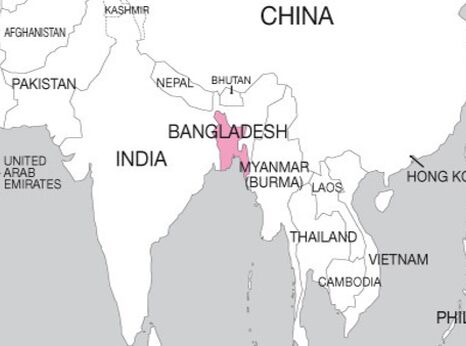Cartoonist tortured, writer dies in jail

Ahmed Kabir Kishore, 46, a prominent Bangladeshi cartoonist told Amnesty International that he was severely tortured from 2 to 5 May 2020 in custody of one or more state security agencies prior to his arrest being officially recorded. On 5 May 2020 unit 3 of the Rapid Action Battalion or RAB-3 officially recorded his arrest along with Mushtaq Ahmed, 53, a Bangladeshi writer for posting on Facebook satirical cartoons and comments critical of the Bangladeshi government’s response to COVID-19 pandemic and ruling political party leaders under the country’s draconian Digital Security Act. The two had been held in pretrial detention for nine months. Since May 2020, they have been denied bail at least six times.
Mushtaq Ahmed died in prison on 25 February 2021. Protests erupted in Dhaka after his death demanding justice for Mushtaq Ahmed and release of Ahmed Kabir Kishore along with the repeal of the draconian Digital Security Act. Bangladesh’s High Court granted Ahmed Kabir Kishore bail for only six months on 3 March 2021. Authorities released Ahmed Kabir Kishore, a week after Mushtaq Ahmed died.
The cartoonist said that when Mushtaq Ahmed and he were brought to the RAB-3 station in Khilgaon, Dhaka, he discovered that Mushtaq Ahmed too was tortured in custody of state security agencies. The Rapid Action Battalion’s spokesperson Lt Col Ashiq Billah rejected the allegations saying to a local media that “an aggrieved person can say anything.”
The UN High Commissioner for Human Rights Michelle Bachelet has called on the Government of Bangladesh to ensure that the investigation into his death in custody is prompt, transparent and independent.
Ahmed Kabir Kishore is an insulin-dependent diabetic patient. He suffered from severely high levels of blood sugar between 18 and 30 millimoles per litre during his incarceration. He bled through his right ear during the torture and, as a result, cannot hear anything with right ear. In addition, he has since experienced severe pain in his left knee and ankle and has difficulty walking now. He requires urgent and proper medical attention.
Mushtaq Ahmed’s death in prison is the “effect of the authority’s cruel practice of prolonging detention of people” said Amnesty International. The United Nations Human Rights Committee has observed that the “harassment, intimidation or stigmatization of a person, including arrest, detention, trial or imprisonment for reasons of the opinions they may hold, constitutes a violation of article 19, paragraph 1.”
The Committee further observed, “the mere fact that forms of expression are considered to be insulting to a public figure is not sufficient to justify the imposition of penalties. The Committee has expressed concern regarding “laws on such matters as…disrespect for authority, disrespect for flags and symbols, defamation of the head of state and the protection of the honour of public officials, and laws should not provide for more severe penalties solely on the basis of the identity of the person that may have been impugned. States parties should not prohibit criticism of institutions, such as the army or the administration.”
Nine others have been accused in the same case for publishing “false information” and “propaganda against the liberation war, the spirit of liberation war, father of the nation”, which could “deteriorate law and order” by “supporting or organizing crime” under sections 21, 25, 31 and 35 of Bangladesh’s draconian Digital Security Act. If convicted, they could face up to 10 years in prison with fines up to 10 million Bangladeshi takas.
Gower Rizvi, international affairs adviser to Bangladesh’s Prime Minister Sheikh Hasina said in an interview to the Deutsche Welle on 11 February 2021 that the Digital Security Act is open to abuse. “Sadly, we have now learnt that some of the wordings are very loose and vague, which leaves it open to its abuse,” he said.
Amnesty International has repeatedly called on Bangladesh’s government to repeal the Digital Security Act unless it can be amended in compliance with international human rights law including the International Covenant on Civil and Political Rights.